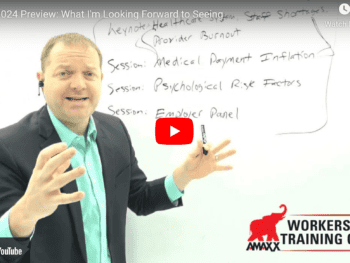Emergencies and disasters can occur any time without warning. Being prepared can minimize panic and confusion when an emergency occurs.
With that in mind, officials in British Columbia (Canada) want to remind employers that they must be prepared to handle such situations before they arise unexpectedly.
Relatively speaking, small businesses may have more to lose than large companies when a disaster — natural or otherwise — strikes. Because of high costs or lack of resources, many smaller companies have less rigorous business-continuity plans in place, and some have no formal processes at all.
WorkSafeBC prepared a guide to help for small businesses make sure they have a plan in place.
Workers With Disabilities
There are often workers with disabilities in every workplace, and some disabilities may not be obvious, or even known to employers or coworkers. General workplace emergency plans do not often address the needs of people with disabilities, and put workers at risk.
Examples of how disabilities affect emergency planning:
- The deaf and hard of hearing: may not have the ability to hear or react to emergency warning systems or oral instructions.
- Visual disabilities: affect a person’s ability to identify escape routes, directional information, instructions, objects or hazards. This will increase their evacuation time.
- Mobility disabilities: may affect a person’s ability to independently leave the worksite, use stairs or open doors.
- Respiratory disabilities: may affect a person’s ability to walk long distances, and perform tasks that require excessive physical activity, such as evacuating a building. These limitations may be exacerbated by smoke, dust, fumes, and chemicals.
- Speech disabilities: (such as difficulties with articulation, voice strength, language expression or total loss of speech) — will affect a person’s ability to communicate during an emergency.
- Cognitive disabilities: may affect a person’s ability to respond to emergencies in the following ways: memory loss, problems with orientation, distractibility, perception, and difficulty thinking logically.
- Mental illness or mental disorders (health conditions that are characterized by alterations in thinking, mood or behavior): may be exacerbated in an emergency situation.
Author Michael B. Stack, CPA, Director of Operations, Amaxx Risk Solutions, Inc. is an expert in employer communication systems and part of the Amaxx team helping companies reduce their workers compensation costs by 20% to 50%. He is a writer, speaker, and website publisher. www.reduceyourworkerscomp.com. Contact: mstack@reduceyourworkerscomp.com.
©2013 Amaxx Risk Solutions, Inc. All rights reserved under International Copyright Law.























